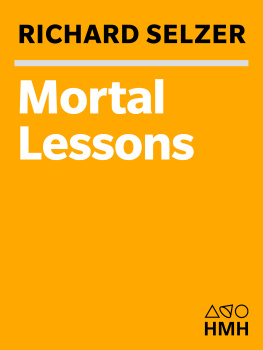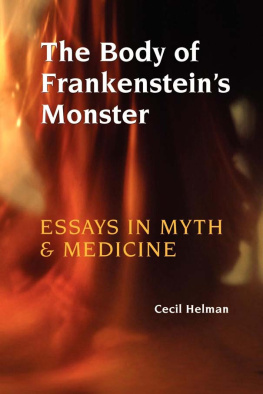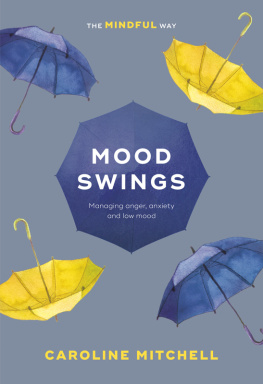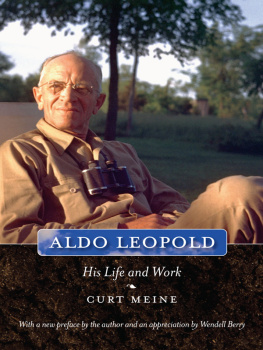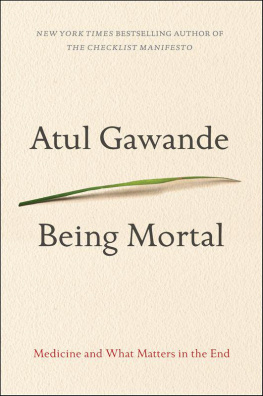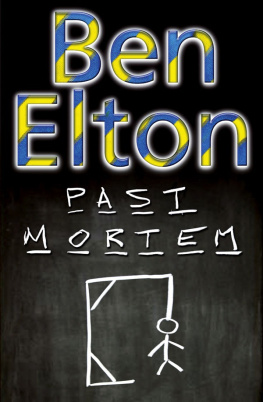Shinner - You Feel So Mortal: Essays on the Body
Here you can read online Shinner - You Feel So Mortal: Essays on the Body full text of the book (entire story) in english for free. Download pdf and epub, get meaning, cover and reviews about this ebook. City: Chicago;London, year: 2014, publisher: University of Chicago Press, genre: Non-fiction. Description of the work, (preface) as well as reviews are available. Best literature library LitArk.com created for fans of good reading and offers a wide selection of genres:
Romance novel
Science fiction
Adventure
Detective
Science
History
Home and family
Prose
Art
Politics
Computer
Non-fiction
Religion
Business
Children
Humor
Choose a favorite category and find really read worthwhile books. Enjoy immersion in the world of imagination, feel the emotions of the characters or learn something new for yourself, make an fascinating discovery.

- Book:You Feel So Mortal: Essays on the Body
- Author:
- Publisher:University of Chicago Press
- Genre:
- Year:2014
- City:Chicago;London
- Rating:3 / 5
- Favourites:Add to favourites
- Your mark:
- 60
- 1
- 2
- 3
- 4
- 5
You Feel So Mortal: Essays on the Body: summary, description and annotation
We offer to read an annotation, description, summary or preface (depends on what the author of the book "You Feel So Mortal: Essays on the Body" wrote himself). If you haven't found the necessary information about the book — write in the comments, we will try to find it.
Shinner: author's other books
Who wrote You Feel So Mortal: Essays on the Body? Find out the surname, the name of the author of the book and a list of all author's works by series.
You Feel So Mortal: Essays on the Body — read online for free the complete book (whole text) full work
Below is the text of the book, divided by pages. System saving the place of the last page read, allows you to conveniently read the book "You Feel So Mortal: Essays on the Body" online for free, without having to search again every time where you left off. Put a bookmark, and you can go to the page where you finished reading at any time.
Font size:
Interval:
Bookmark:
YOU FEEL SO MORTAL
Essays on the Body
PEGGY SHINNER
The University of Chicago Press
Chicago and London
A lifelong Chicagoan, Peggy Shinner teaches in the creative writing MFA programs at Roosevelt and Northwestern Universities.
The University of Chicago Press, Chicago 60637
The University of Chicago Press, Ltd., London
2014 by Peggy Shinner
All rights reserved. Published 2014.
Printed in the United States of America
23 22 21 20 19 18 17 16 15 14 1 2 3 4 5
ISBN-13: 978-0-226-10527-7 (cloth)
ISBN-13: 978-0-226-12780-4 (e-book)
DOI: 10.7208/chicago/9780226127804.001.0001
Library of Congress Cataloging-in-Publication Data
Shinner, Peggy, author.
[Essays. Selections]
You feel so mortal : essays on the body / Peggy Shinner.
pages cm
ISBN 978-0-226-10527-7 (hardcover : alkaline paper) ISBN 978-0-226-12780-4 (e-book)
1. Human body. 2. Body image. 3. Human bodyFolklore. 4. Human bodyMythology. I. Title.
GT495.S54 2014
814'.6dc23
2013031722
 This paper meets the requirements of ANSI/ NISO Z39.48-1992 (Permanence of Paper).
This paper meets the requirements of ANSI/ NISO Z39.48-1992 (Permanence of Paper).
FOR ANN
The body was like a sweet, dim dog trotting lamely toward the gate as you tried slowly to drive off, out the long driveway. Take me, take me, too, barked the dog. Dont go, dont go, it said, running along the fence...
LORRIE MOORE
Contents
PART ONE
Family Feet
ONE
I have, according to a dubious assemblage of pundits, propagandists, and pseudoscientists, Jewish feet. What I thought was familial is, in the eyes of some, tribal. My feet are flat. They turn out. In podiatric lingo, they pronate. Pes planus, in medspeak and Latin. Liopothes, or people with smooth feet, wrote Greek physician Galen, who was the first to describe flat feet in the medical literature.
When I was eight or nine, my parents took me to an orthopedist. He assessed my walk, took some measurements, prescribed orthotics. I suppose I wore them, but I dont remember. I felt ashamed. Wasnt walking as natural as breathing? How could I screw up? (It should be noted, reads an entry in Reference.com, an online encyclopedia, that... horses also develop flat feet.) Already I was round-shouldered and prepubescent. Too tall. Too smart. Unathletic. I scored in the lowest percentile for the number of knee lifts I could do while hanging from the bars in gym (ten).
My feet, or more specifically my walk, seemed to be a source of family tension. I walked like my father. My mother used to say we walked like ducks. When she walked behind us, she was amused by the similarity of our turned-out gaits. Something in her amusement suggested superiority. She had high arches. Aristocratic feet. Never mind that she wore heel pads in her shoes, sorry slabs of beaten leather. Or that she and my father both came from Russian-born parents whod fled the pogroms. Her father was a sign painter, his a tailor. Somehow she was high class and we were low. Wefather and daughterwere among the fallen, the downtrodden, the miserable flat-footed. Nate Shinner and his gawky daughter, one imprinting on the other.
Over the years my feet went unreformed. And later it was my lover, not my mother, who noted them. She too seemed amusedthe way youre amused, smitten almost, by the most familiar traits of the one you love. We were walking back to the car after seeing a performance of Evita. My father, brother, and I in front, Ann and my great-aunt behind. My father was still shaken by the image of Eva Perons coffin being carried across the stage. His sadness annoyed me. Did he have to be so self-absorbed? Did everything have to remind him of my mothers death, even though, at the sight of the coffin, I thought of her too? My mothers life, like Evas, prematurely occluded (Eva was thirty-three when she died, my mother fifty-sixnot nearly as young as Eva, but young enough). Meanwhile, Ann, a few steps behind, had a different view. She and my aunt saw, not Evas coffin hoisted above the shoulders of her grief-stricken followers, not Che Guevara singing Oh What a Circus at the edge of the crowd, but instead parent and progeny traipsing down Randolph, lock-stepped in harmony. And they were tickled. Look at them. Can you believe it? They walk the same. Those Shinners. Three ducks in a row. We were so endearing.
TWO
So whats Jewish about my feet, planted under my desk and swaddled, for warmth and comfort, in SmartWool? I look down at them, and even through the socks I see the rounded contours of the first joints of my big toes. The bump on my left toe is bigger. Bunions, I suppose, but theyve always been there, part of my geography. Once, at a sleepover, my cousin pointed at one of them and asked me what that was, but I had no idea what she meant. My feet were ordinary.
Or not. History has weighed in on my body, and I have come up... Jewish. The evidence? Since the Middle Ages, the Jewish foot has been characterized as ugly, misshapen, flat, even cloven, like that of the he-goat and his close relative, the devil. And just as I sit here wearing socks that disguise my feet, but not really, so too have shoemakers, throughout the centuries, concealed the Jewish foot, but barely, and enabled the Jews, with their telltale feet, to pass, sort of. (Shoemaking has long been a common trade among Jews. At the turn of the twentieth century, for instance, there were 730 Jewish shoemakers in Algiers and 2,890 in London.) How do you (Jews) recognize each other? British writer Clive Sinclair was asked during a trip to Bulgaria in the early 1990s. Do you give each other [secret] signals? Sinclair paused for a moment before lifting his pant leg. Thats what we do, he deadpanned. We show each other our cloven hooves.
And on it goes. English scholar and vicar Robert Burton, in his sui generis Anatomy of Melancholy (1621), singles out the Jews pace, which he labels an infirmity. Johann Jakob Schudt, who chronicled the life of Jews in eighteenth-century Frankfurt, wrote of their big heads, big mouths, everted lips, protruding eyes... bristle-like eyelashes, large ears, [and] crooked feet. Late nineteenth-century anatomist Hermann Schaaffhausen linked anatomy to social status and maintained that Jews walked with the dragging gait of a lower-class individual. And Nazi caricaturist Walter Hofmann argued that because the archetypal Jew, constructed from wet clay, disobeyed divine orders and arose while the clay was still damp and soft, the smarty developed after the first few steps extraordinary bandy legs, but also flat feet. Whereas gay men are portrayed as limp-wristed, Jewish menoften seen as effeminate and oversexed at the same timesimply limp. Be out! Be out! (Der mu hinaus! Der mu hinaus!), a German folk song, Borkum Lied, exhorts anyone with flat feet, crooked noses, and curly hair who might dare venture to Borkum, a North Sea resort island and German vacation spot. Out!
Some Jews have appropriated this hobbling image, viewing it with affection. In a 2000 GQ article about Jewish waiters, one man fondly recalls visiting Ratners, a deli on New Yorks Lower East Side, with his grandmother. No waiters ever walked like them. They walked like they were old, even when they were 25. It was almost like they had a walker. Adds another, himself the owner of a deli in Baltimore, They schluffed their feet, like they had weights on them. Apparently the Jewish waiter served up not only food but, in time-honored fashion, suffering as well.
THREE
After Schudt and Schaaffhausen and the rest, I cant help looking at my feet differently. The lens has switched. The reflections changed. The nose, yes, theres always been the nose, but I had that fixed, didnt I? I had that dead giveaway reconfigured. The hair toonot mine, mostly straight and nondescriptbut S.s, for example, which Ive long admired: dark, curly, wiry, and undeniably Semitic. But now the feetand, it turns out, the round shoulders, the unathletic build, the odor even (
Next pageFont size:
Interval:
Bookmark:
Similar books «You Feel So Mortal: Essays on the Body»
Look at similar books to You Feel So Mortal: Essays on the Body. We have selected literature similar in name and meaning in the hope of providing readers with more options to find new, interesting, not yet read works.
Discussion, reviews of the book You Feel So Mortal: Essays on the Body and just readers' own opinions. Leave your comments, write what you think about the work, its meaning or the main characters. Specify what exactly you liked and what you didn't like, and why you think so.

